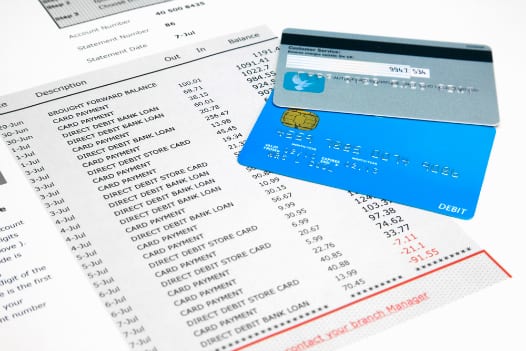Gray Charges Have Credit Card Customers Seeing Red
Home > Credit > Credit Cards >
As if high credit card fees and rising interest rates aren’t aggravating enough, a growing number of credit card customers are being sucker-punched by companies sneaking small charges onto cards that add up to a whole bunch of cash.
Called “gray charges,” these unwanted fees are small but add up overtime. They include subscription fees, recurring membership fees and unwanted renewals. Individually, the charges could be only a couple of bucks each. But altogether, they could add up to hundreds of dollars. Consumer advocates call them deceptive because many shoppers don’t realize that their credit cards are being charged until it’s too late. This leads consumers to feel cheated.
How Do Gray Charges Work?
Take for example a Detroit area woman who bought a $30 pair of earrings from a website and eventually paid more than $90 for them. She didn’t realize that the site had charged her a $30 monthly membership fee for several months. Had she not caught the charges, she would have continued paying for the membership.
“No one stole my card, but I must not have read the fine print that said ‘We’re going to keep charging you,’ ” she told the Detroit Free Press.
This woman is like thousands of other unsuspecting consumers nationwide. They are making unwitting regular payments as a result of auto-renewal systems, also called a negative option. It’s all perfectly legal, but that hasn’t stop consumers from complaining.
Fighting Back Against Gray Charges
The Federal Trade Commission (FTC), a consumer-advocate organization which fields call from consumers about this so-called negative-option marketing, said this type of problem is common. Many consumers jump into free trial offers without understanding the fine print. They aren’t clearly informed that they’ll be charged if they don’t cancel their subscriptions before the free trials end.
In 2011 alone, the FTC ordered nearly $40 million in refunds regarding bogus phone bill charges. The problem came as a result of consumers who didn’t see the charges or simply didn’t read their bills monthly, FTC authorities said. The way to eliminate gray charges is to be acutely aware of the reoccurring charges on monthly credit card statements and highlighting ones that seem suspicious, they said.
Experts say that consumers should take some basic steps to ensure gray charges are kept at bay:
- Go over each credit card statement with a fine-tooth comb. Make sure you know exactly what charges are for and where they come from. Don’t be afraid to call the credit card company to question charges.
- If you’re offered a free service or product, be wary. Before you give your credit card information to any company, ensure that you understand any recurring charges. Again, don’t be afraid to ask questions or ask for the fine-print in writing. A refusal on their part should raise a red flag for you.
- When making purchases, use a credit card rather than a debit card. This will offer you greater protection under the Fair Credit Billing Act, which allows you to dispute billing errors on credit cards more easily.
- Contact the Federal Trade Commission about any fraudulent charge, bad marketing or falsified charges at www.ftc.gov or 877-382-4357.
Sources:
- Drake, C. (2012, October 16). Consumers Sucker-Punched by Sneaky 'Gray Charges'. FoxBusiness. Retrieved from http://www.foxbusiness.com/personal-finance/2012/10/11/consumers-sucker-punched-by-sneaky-gray-charges/
- Tompor, S. (2012, March 8). Susan Tompor: Consumers find gray charges may be tacked onto statements. Detroit Free Press. Retrieved from http://www.freep.com/article/20120308/COL07/203080629/Susan-Tompor-Consumers-find-gray-charges-may-be-tacked-onto-statements

